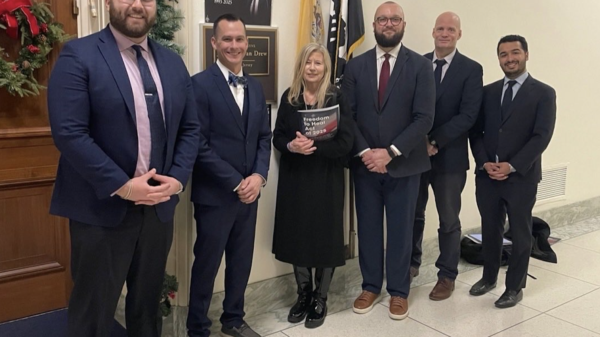A pair of Canadian teachers will be hosting a book launch event on Thursday to celebrate the debut of their latest literary work on the modern-day psychedelics industry. It will be held at a McNally Robinson Booksellers location in Winnipeg and available for viewing via live stream on YouTube.
Psychedelic Capitalism was written by University of Winnipeg criminal justice professor Kevin Walby and Carleton University’s political economy teacher Jamie Brownlee. Therein, they argue that the sector is currently plagued by “corporadelic” interests and discuss what could be gained by overcoming them.
“Our focus is on drawing out what may be lost if the psychedelic renaissance continues toward medicalization and corporatization,” the authors described, “and what is to be gained from a just and equitable psychedelic future rooted in the public interest.”
The book was published on May. 6 and has received positive reviews from academics and others who have taken the time to read it.
“Psychedelic Capitalism weaves a cogent and compelling story that critically considers the socio-political and economic foundations of what’s driving the popularization of this [re]emergent area of research and practice,” said University of British Columbia professor, Kenneth Tupper.

Image credit: Kevin Walby
Read more: Canada’s psychedelics trade association calls on party leaders to cut red tape as election nears
Book is a wake up call, Manitoba health professional says
Shelley Marshall, a Clinical Nurse Specialist with the Winnipeg Regional Health Authority, believes the written work is highly enlightening. She thinks that powerful interests are steering the industry in a direction that may be detrimental to Indigenous groups and those in marginalized or low-income communities.
“Brownlee and Walby expose where the corporate capture trip is headed through hasty medicalization, commercialization, psychedelic tourism, Big Tech, Big Pharma, and intellectual property practices,” Marshall highlighted.
Topics of interest covered throughout the pages include the FDA’s decision to reject MDMA-assisted therapy, usage of psychedelics by the CIA and American military, debates about microdosing, the psychedelic stock market and legal psychedelic access in Canada.
“What is clear is that the future of psychedelics should not be left up to governments, the pharmaceutical industry, venture capitalists or medical professionals” the authors stated in the book’s abstract.
In an ideal world, they say it should be centred around and integrate a wide set of public constituencies and stakeholders — including underground therapists and researchers, Indigenous practitioners, policy experts, harm reduction advocates and drug reform activists.
Read more: ‘Snowball Cubensis’ psilocybin strain turns heads, completely unique
Follow Rowan Dunne on LinkedIn
rowan@mugglehead.com














